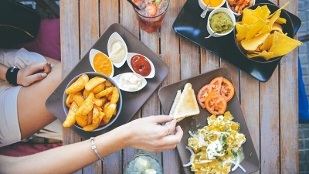
Is weight loss hydrotherapy right for you? What are the requirements of Japanese food: menu and food choices. What result is worth waiting for?
Water-based weight loss therapy originated in Japan and has become very popular all over the world in recent years. It is called the Japanese diet, although it is more of a hydration therapy than a diet plan. Observing it can make the body get good moisture and get rid of excess weight.
Japanese dietary principles
The advantage of the nutritional system is that it does not need to adjust the diet and give up favorite foods.
But some conditions must be met:
Start the day with water.Drink four to five glasses of room temperature water on an empty stomach every morning. Too much? It really is but this is the essence of hydrotherapy. The body must receive as much water as possible. If it is difficult to start with this "dose", please solve it step by step. Make a cup or two at first. Within a few weeks, adjust the amount of fluid consumed in the morning to the recommended rate.
Drink "thirsty" all day long.There is no limit to the amount of fluids you drink during the day. You can drink whatever you want. Listen to how you feel. Normally, the human body needs water under the cover of hunger.
Reduce food intake to 15 minutes.The interval at which you can eat is 15 minutes. That being said, Japanese eating habits do not determine what you should eat. In theory, you can eat anything. The 15-minute rest period can prevent you from overeating or overeating.
Eat for no more than two hours.The number of meals per day is also limited. But the time of the next appointment must not be two hours earlier than the previous one.

Drinking enough water can cleanse the digestive system, improve intestinal health, and prevent constipation. Liquid makes the stomach feel full and reduces cravings for food.
According to research data, overweight people who drink 500ml of water 30 minutes before meals eat 13% less food. In the long run, this helps them lose weight.
According to scientific evidence, drinking water increases your resting energy expenditure. This means that even if you perform daily activities, you will burn more calories than before. Increasing energy expenditure while reducing food intake will inevitably lead to weight loss.
Japanese food: menus, functions
Although diet does not imply restrictions on food choices, you still need to handle this issue carefully. After all, too many calories in the diet are often the cause of weight gain.
Avoid sources of "empty calories": sugar, desserts, baked goods, regular pasta, rice. Replace them with sources of long carbohydrates: whole grains, whole grain breads. Include more protein foods in your diet: meat, fish, dairy products, beans. Don't forget fruits and vegetables: vegetables should be used in every meal. And use fruits instead of desserts.
Changing to a new diet can safely lose weight (no more than 4 kg per month). This slow weight loss process does not put pressure on the body. And it helps to maintain the results achieved and continue to lose weight to normal levels.
Enough physical exercise can help improve and speed up the results: jogging, walking, swimming, fitness. Any type of physical exercise you like will help you lose weight.
Advantages and contraindications of Japanese diet
Diet supporters believe that this diet plan is more than just weight loss. But also:
- Improve brain function;
- Give energy and vitality;
- Help control blood pressure;
- can prevent headaches.
These effects are the logical result of normal human hydration. And if you did not drink enough water the day before, you will feel really better.
But it’s important to remember that everyone’s needs for liquids are different. It depends on weight and physical exercise. Drinking too much water is just as dangerous as drinking water shortage. It may cause a severe drop in blood sodium levels. And lead to hyponatremia-the typical symptoms of poisoning: vomiting, nausea, loss of consciousness.
Although drinking only four to five glasses of water at a time will not cause hyponatremia, you should be careful. Do not forcefully "pour" liquid into yourself.
People with impaired kidney function should not take risks and start hydrotherapy without consulting a doctor. If you feel uncomfortable in a Japanese diet, you need to reduce your water intake.































